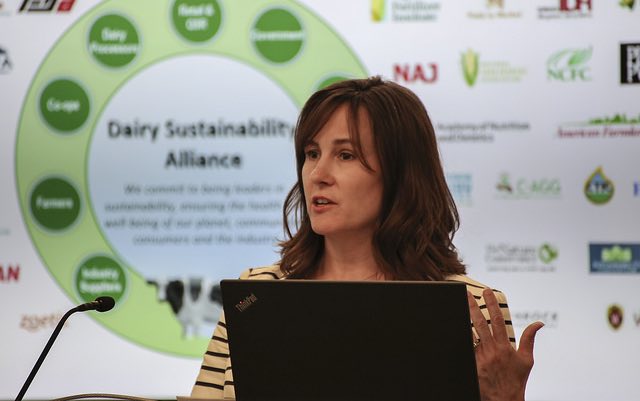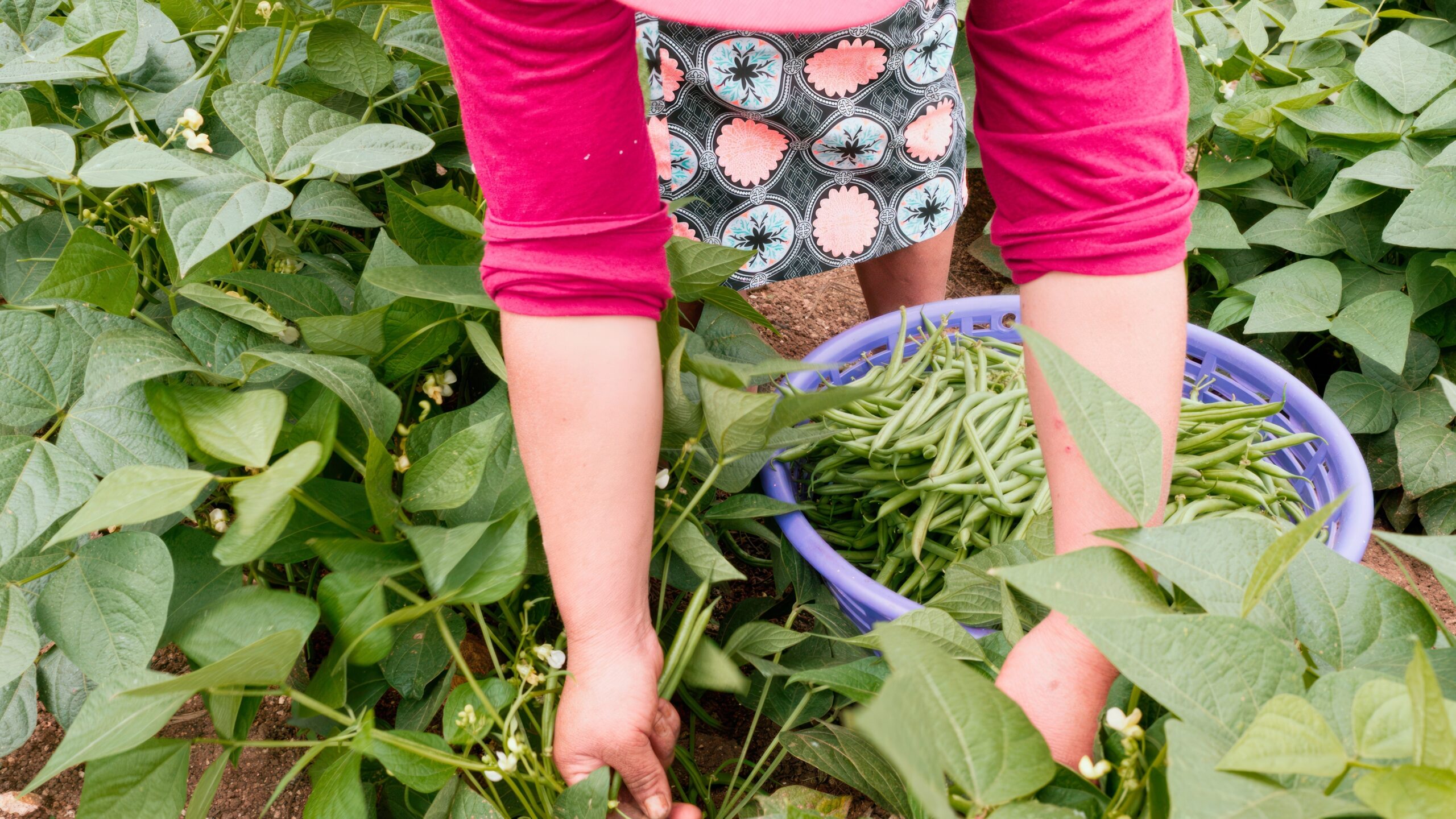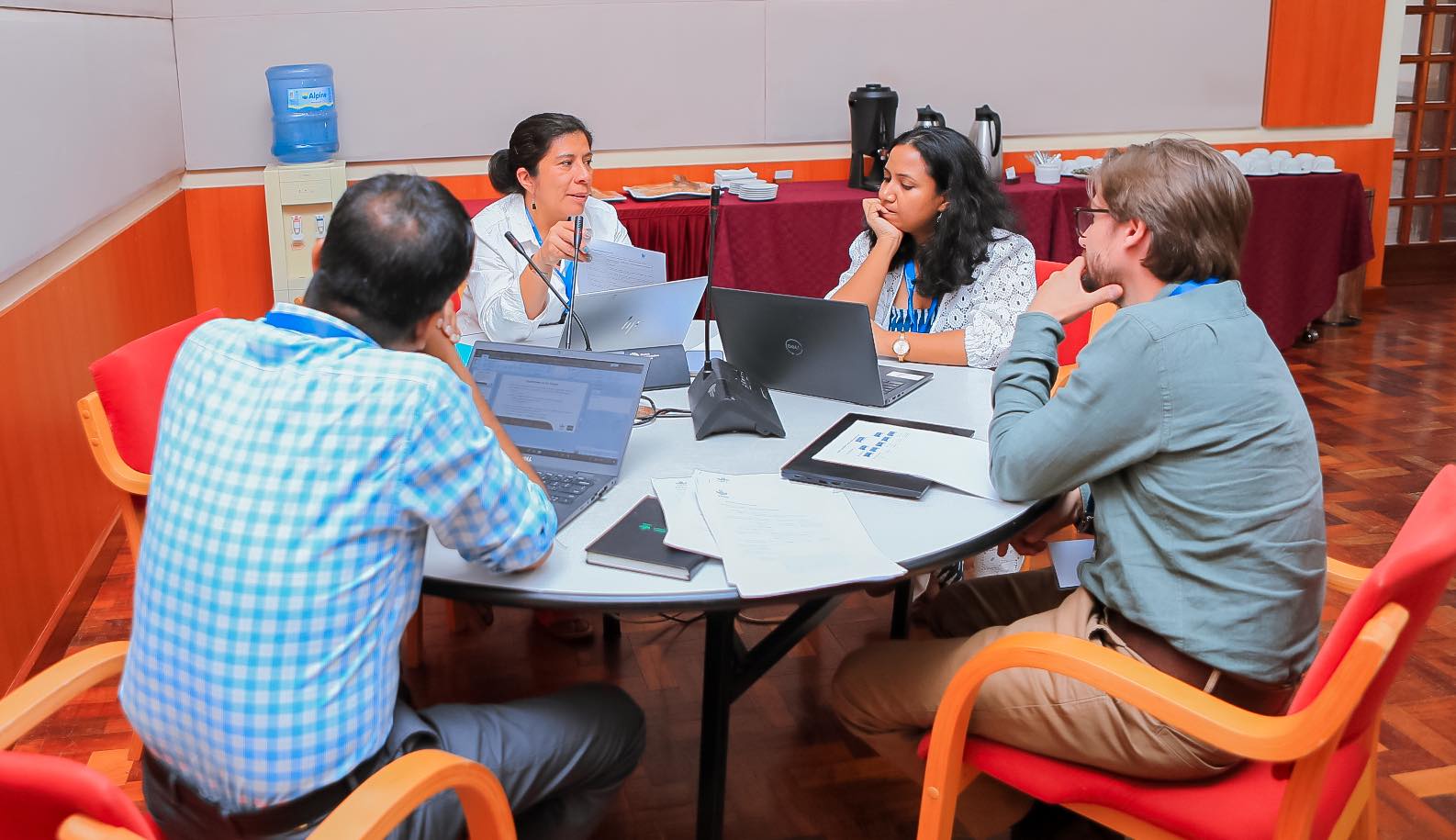The role of animal-based food has perhaps never been more important than today, when hidden hunger still affects two billion people, and climate change has already begun to impact agricultural systems. At an event co-organized by Embassy of the Federal Republic of Germany–Washington, the Farm Foundation, and IFPRI on The Future of Livestock: Enhancing Sustainability, Responsibility and Efficiency, experts from research, government, and the private sector discussed how livestock fits into a sustainable food future.
IFPRI Director General Shenggen Fan noted the complexity of our relationship to animal protein. On one hand, it “plays a huge role for children, who, if they do not have access to animal-based protein…can be stunted.” On the other, its consumption remains one of the largest contributors to anthropogenic climate change. So, as Fan asked, “How can we make sure that we have a sustainable, responsible, and efficient livestock system and still meet [dietary] requirements for animal protein?”
Panelist Friedrich Wacker, head of the Directorate on International Cooperation, German Federal Ministry of Food and Agriculture, provided perspective from the 10th annual Global Forum for Food and Agriculture (GFFA), recently held in Berlin. Wacker noted that participants “identified four central challenges that must be reconciled with each other: Food security; improvement of livelihoods; protection of resources and climate; and betterment of animal health and welfare.” The complexity of these challenges is magnified by rising demand for animal-based proteins, he said, and by the role of livestock in “securing livelihoods, creating incomes and employment, and in its socio-cultural functions.” Ministers at the conference responded to these challenges with commitments to improved research and the prevention of loss and waste in the livestock sector. They also affirmed their support for improving investment in livestock and enhancing access to markets, while promoting environmentally sustainable farming and committing to the implementation of strategies for animal welfare.
The livestock industry is also taking note of the changing food landscape in both the dairy and meat sectors. Karen Scanlon, vice president of sustainability for the Dairy Management Inc. Innovation Center for US Dairy, outlined the progress that has been made already in shrinking the ecological footprint of the dairy industry. A 2007 Cornell study demonstrates improved modern efficiencies: Producing a gallon of milk required 90 percent less cropland in 2007 than it did in 1944. The dairy industry has embarked on a “sustainability journey … making smart business decisions and production changes to increase efficiency,” she said. Dairy leaders have also created an official commitment to sustainability, stating the goal to exercise stewardship in every part of dairy production, from cows to the community.
Larger corporations are also taking note of progress on sustainable practices. Joe Swedberg, Farm Foundation board chairman and former vice president of legislative affairs with Hormel Foods, noted that consumers are now helping companies like Hormel guide their policies, which have increasingly leaned toward transparency and frequent evaluation. Hormel’s Pork Quality Assurance Plus (PQA+) program requires that participating producers be trained and take part in audits of animal care and welfare, including antibiotic use and husbandry practices. Hormel has also supplied food aid, producing shelf-stable turkey products made from meat that would usually go to waste. Consumer engagement on these issues means it is now good business to think about animal welfare and make animal protein more efficient and sustainable to produce.
Christopher Delgado, a consultant with the Africa Agricultural Policy Unit at the World Bank, shined a light on the rapid growth in consumption of animal products in developing countries, where meat consumption rose 275 percent between 1982-4 and 2014-16. Delgado cited a World Resources Institute report that shows this trend will continue, predicting a 70 percent increase in demand for calories worldwide by 2050, much of which will come from meat and dairy. This scramble for calories bodes poorly for climate change mitigation if damaging agricultural practices such as deforestation and other land-use changes are not curtailed. Booming demand underlines the importance of sustainable, efficient animal husbandry practices, Delgado said.
John McDermott, director of the CGIAR Research Program on Agriculture for Nutrition and Health, noted that solutions to these challenges won’t always be driven by large-scale production efficiency concerns. The key is to “think about resilience more than production efficiency.” McDermott suggested a few solutions to this resilience challenge: Adopting modern practices helps to bring more producers in the global market, with new technologies improving the safety of products from countries once deemed risks to public health. Participating in organizations will also be crucial to livestock farmers’ capacity to adapt to changing markets—while cooperatives have been a helpful model in the past, scaling up production may require that farmers find new ways to organize and communicate amongst themselves. Finally, the introduction of better food system technology, including the tracking of products and diseases, will prove necessary in modernizing and streamlining the growing network of dairy production.
As Astrid Jakobs de Pádua, minister counselor for food and agriculture at the German Embassy, noted in her closing remarks, behind these diverse emerging solutions there is a strong need for building alliances and sustaining dialogue around ways to meet the growing demand for animal products. The world is changing how it eats, and as a result we must change how we raise livestock.
Katherine Peinhardt is a freelance writer.







